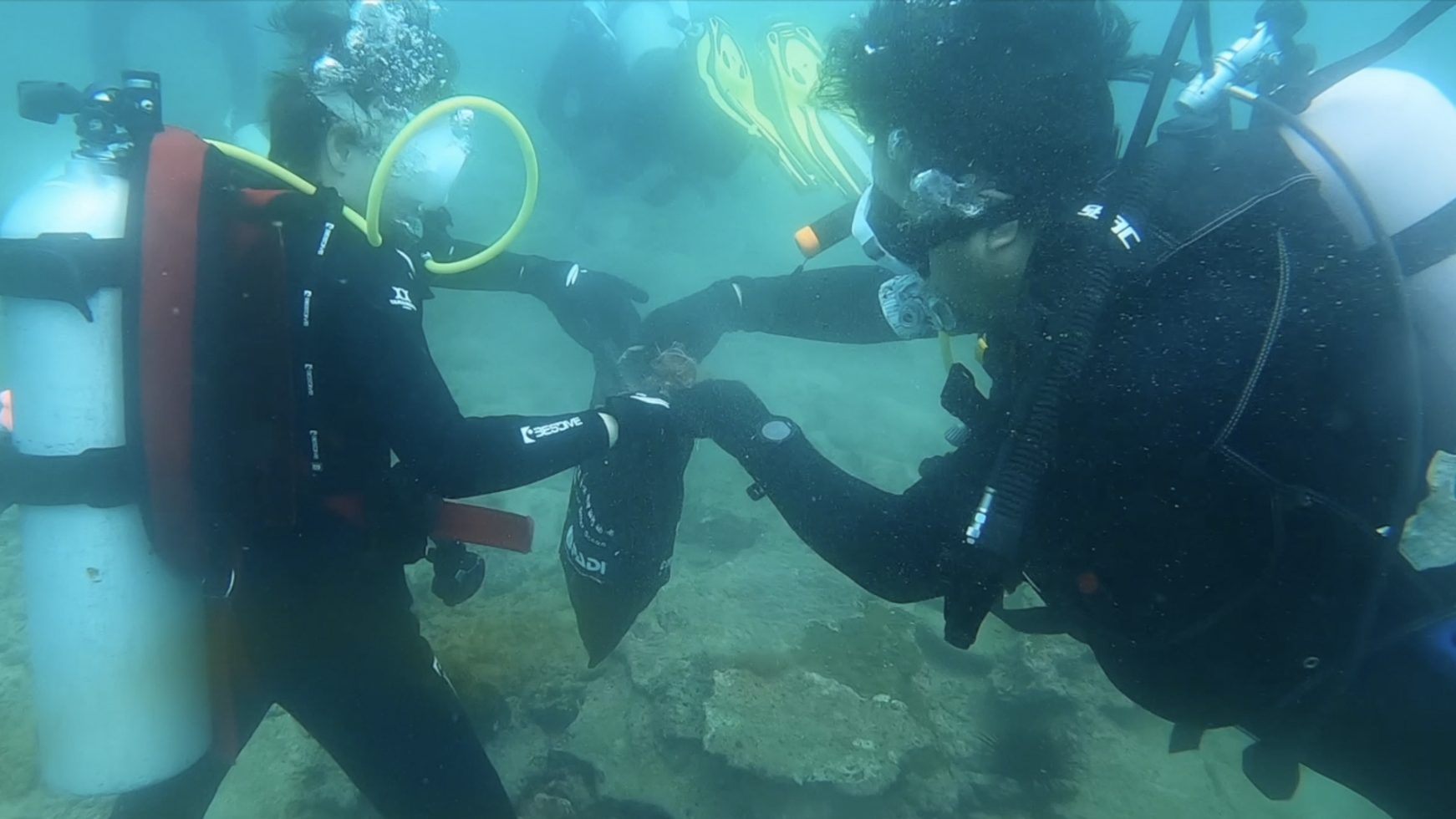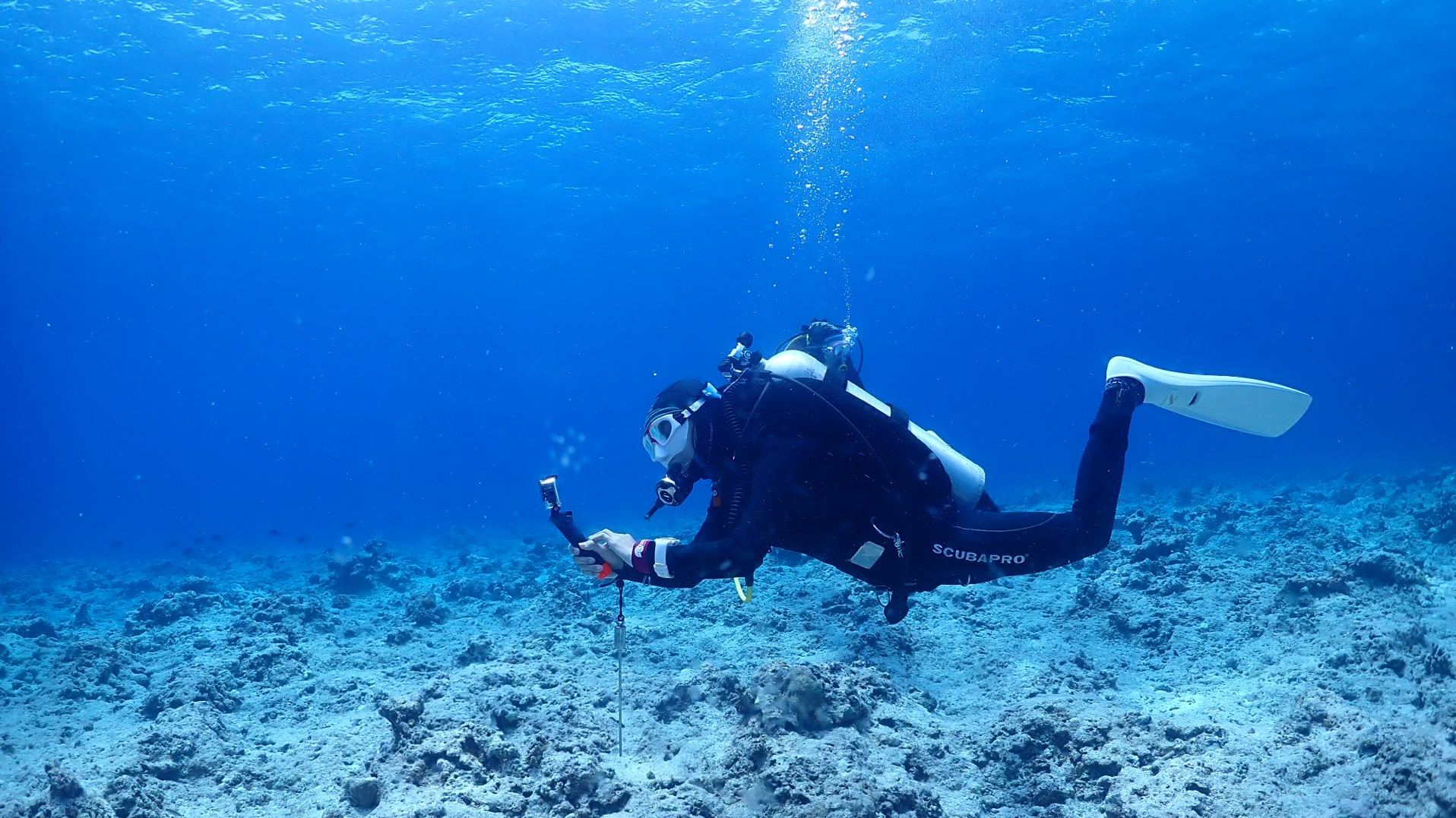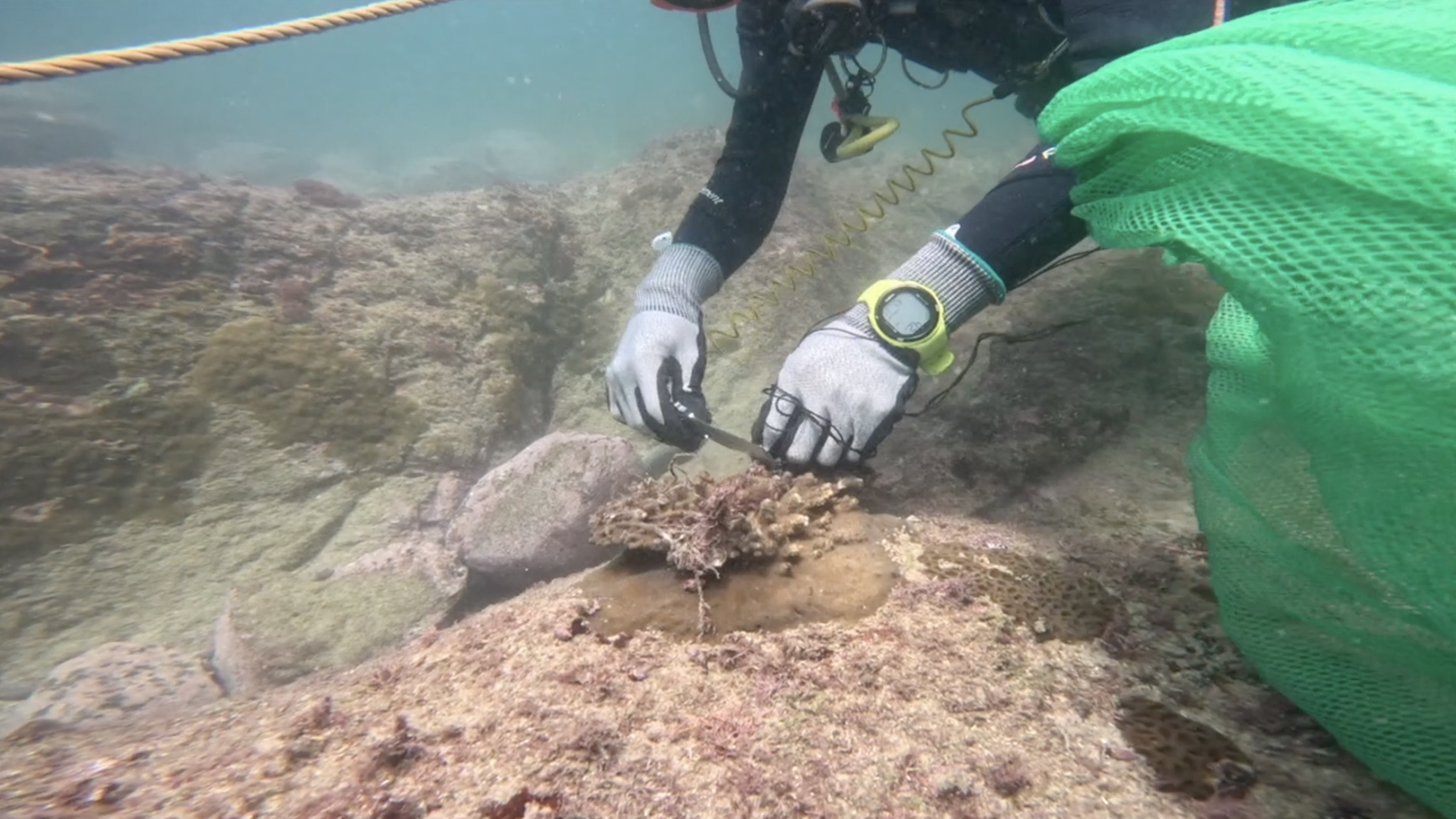01:15

For scuba divers, exploring the underwater world is a dream come true. But marine debris is proving to be a nightmare for them.
In 2016, Liu Xuelian was on her way back to land in Malaysia, after diving close to Mabul Island, when she spotted a garbage patch in the ocean. Food waste, shoes and diapers were stuck together, creating a mass that floated for several kilometers.
"It was very shocking, and it pushed me to do more to protect our ocean," she said.
Since then, she joined "Better Blue," an NGO focusing on marine conservation in China, to call on more divers across the country to protect the ocean.

Liu Xuelian dives and records in the ocean.
Liu Xuelian dives and records in the ocean.
Liu is now the co-chief executive officer of Better Blue and has taken part in many cleanup events over the years. In one such event in the waters off Huizhou City in south China's Guangdong Province, she saw firsthand how human activities were damaging the marine ecosystem. Discarded fishing lines, hooks and nets, plastic bags and cans had made their way into the water.
"The area was where sea turtles migrate to lay their eggs. The garbage could suffocate and entangle them," she said.
During the cleanup event, 14 kilograms of fishing gear and 4.4 kilograms of other debris were collected.
In the past four years and thanks to a network of volunteers across China, the organization has removed more than 2,000 pieces of discarded fishing gear from several sea areas. But that's just a drop in the ocean of marine waste globally.

A volunteer cuts a rope around corals.
A volunteer cuts a rope around corals.
Every year, more than 8 million tonnes of bottles, bags, toys and other plastic rubbish end up in the world's oceans, equal to dumping a garbage truck of plastic every minute. And this is just the amount of plastic in marine debris. There is no clear data on the total amount of marine debris. Of all marine debris, about 80 percent comes from land, while the remaining 20 percent from human activities at sea.
Liu says waste eventually ends up in the ocean because it is poorly managed. Whether it is the garbage we throw away or the garbage picked up from the ocean, it should be classified and discarded into garbage bins to enter the urban waste management chain.
"If you don't manage your waste well, then it can get into the natural environment for any number of reasons," she said.
As of 2018, there were more than 200 organizations in China focusing on marine issues, and the number keeps growing. Meanwhile, more people are participating in marine conservation activities.
"Volunteering activities to protect the oceans influence more people to pay attention to and participate in ocean conservation. The small contributions of each individual add up and can make a big difference," she said.
(Videos and photos provided by Liu Xuelian and Better Blue)
(If you want to contribute and have specific expertise, please contact us at nature@cgtn.com.)